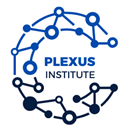 The rise in awareness of the principles of complexity continues to be both a boon and a problem for many scientific disciplines, resulting in intense discussions about how best to integrate this method of scientific discovery with established practices. The major divisions in the development and application of “complexity informed” models and tools have been between the legitimacy of mathematics versus conceptual models both for discovery and proof. This divergence of approaches in clearly evident in the field of healthcare; mathematics is firmly holding sway on the side of disease and infirmity with a predominantly conceptual approach on the organizational side of health care.
The rise in awareness of the principles of complexity continues to be both a boon and a problem for many scientific disciplines, resulting in intense discussions about how best to integrate this method of scientific discovery with established practices. The major divisions in the development and application of “complexity informed” models and tools have been between the legitimacy of mathematics versus conceptual models both for discovery and proof. This divergence of approaches in clearly evident in the field of healthcare; mathematics is firmly holding sway on the side of disease and infirmity with a predominantly conceptual approach on the organizational side of health care.
On January 17, 2018, join Plexus Catalyst, Mike Taylor, for a Pop-up discussion on Complexity in Healthcare: Will you know it when you see it?
The two most daunting and complex health problems in America are treating and preventing chronic illnesses and improving the quality and safety of health care. As we curate the archives of Plexus healthcare projects the question that consistently surfaces is “How has using complexity science to improve health care quality shifted healthcare ecosystems?”
Scientific breakthroughs from Genomics Editing/Splicing to the use of Augmented Reality for healthcare education represent just a fraction of the emerging advances made through technology and research in treatments and health management. However, addressing and changing complex problems that exist in the broader healthcare ecosystems is another challenge with a persistently high human and financial toll.
Taylor and many health care experts believe complexity science, the discipline that explains how living systems self-organize, evolve and adapt, offers critical insights needed to deepen understanding of human physiology and human organizations. Complexity science has led to the understanding that the same deep underlying principles apply to the human body and human-centered organizations such as hospitals, nursing homes and primary care practices. As early as 1997, the Institute of Medicine, in its Crossing the Quality Chasm: A New Health System for the 21st Century embraced complexity “as a guide in formulating its agenda for change.” This book continues to be relevant to ongoing consideration for healthcare challenges and opportunities.
Early research initiatives and projects led by Plexus Institute demonstrated complexity-inspired management practices, such as extensive engagement of nurses and physicians in organizational decision making, improved patient outcomes. Additionally learning networks were are created and facilitated by Plexus for groups of individuals interested in learning together and discovering novel approaches to challenging issues. Diverse participants from both the health care community and related disciplines came together to experience interactive learning and action-based activities guided by principles of complexity science.
 Plexus Pop-Up Conversations offer Network participants an opportunity to engage with a wide variety of topics and emerging projects.
Plexus Pop-Up Conversations offer Network participants an opportunity to engage with a wide variety of topics and emerging projects.
Mike Taylor, RN, MHA, CDE is an independent theorist specializing in the application of complexity science to health and compassion – www.CompassionMillennium.org/ www.CompassionMillennium.com. His Unified Theory of Meaning Emergence takes a major stride in connecting the mathematics of complexity with self-transcendence and compassion. He has spoken at international, national and regional conferences on complexity in health, business and nursing. He is currently working on developing the platform of social compassion as a method of rapid social change. Taylor’s interest in having a conversation on this topic opens the door for possible collaborations and project-based initiatives within the greater Plexus Network leading to new learning clusters focused on:
- Uncovering, creating and testing new strategies suggested by complexity science for reducing the impact of chronic illness and improving healthcare quality, and
- Raising awareness within the nursing, medical and healthcare management communities of complexity science and the promise it offers.
The following resources are available for review.
Do complexity-informed health interventions work? A scoping review
Disconnected, fragmented, or united? A trans-disciplinary review of network science
